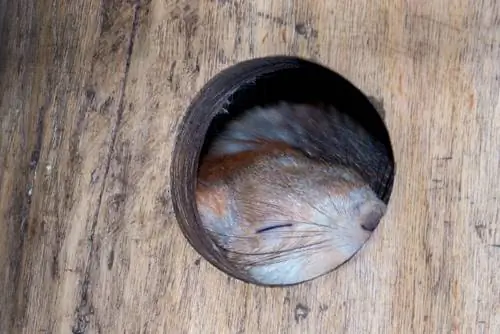- Author admin leonars@hobbygardeners.com.
- Public 2023-12-16 16:46.
- Last modified 2025-01-23 11:22.
In winter, numerous animals hibernate in order to survive the food-poor period unscathed. Some mammals such as foxes can also be seen in winter. Are martens one of those animals that hibernate or are they also active in winter?

Do martens hibernate in winter?
Martens do not hibernate and are active even in the cold season. They leave their refuge every day in winter to look for food and can cause damage to car engines or insulation materials.
Do martens hibernate?
Let's not beat around it: No. Martens do not hibernate. So if you find tracks in the snow in winter, they could just as easily be marten tracks as fox or cat tracks.
What do martens do in winter?
Martens also have to hunt in winter to feed themselves because they mainly eat meat. This means that martens have to leave their refuge every day, even in winter, and go in search of food. Martens are nocturnal, which means that they may not even notice your presence.
Do martens also cause damage in winter?
Martens like to spend the night in warm car engines or in the insulation material in the roof, especially in winter. However, it is reported that less marten damage can be observed in winter. This is not because the martens do not spend the night in the engine compartment, but because they have less competition and are therefore less aggressive. Since there is no mating season in winter, martens usually stay in their territories and therefore rarely come into contact with rivals. However, during mating season they leave their territory and go looking for a partner. It can happen that they spend the night in a “strange” car and the smell of another marten hits their nose. They can't stand it at all and become aggressive and destructive. In their anger they sometimes bite a few cables.
Tip
The mating season is from June to August. You should particularly protect your car during this time, but you should under no circumstances kill or catch a marten at this time, as the mating season falls within the closed season.
Background
What happens during hibernation?
An animal in hibernation lowers its heart rate, breathing rate and body temperature extremely low in order to use significantly less energy. A hedgehog's heart only beats about four to five times per minute during hibernation. He drops his body temperature from a normal 36 degrees to below 10 degrees. This means that the animals can live all winter on the fat reserves that they have eaten in the autumn.






